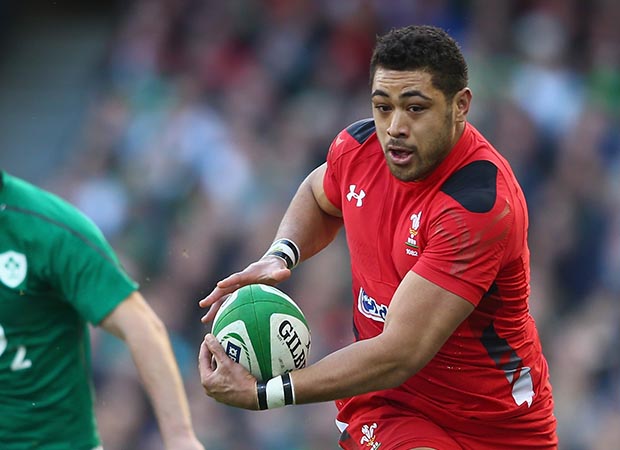 Like Mo Farah's front doorbell when the drug testers came calling, Warren Gatland's eponymous law has much to answer for. As another Welsh Lion prepares to head for England post-World Cup, Gatland had one last opportunity before Wales pitch camp in the Swiss Alps to concede that, in this particular case, the law truly is an ass. Not surprisingly, he passed it by.
Like Mo Farah's front doorbell when the drug testers came calling, Warren Gatland's eponymous law has much to answer for. As another Welsh Lion prepares to head for England post-World Cup, Gatland had one last opportunity before Wales pitch camp in the Swiss Alps to concede that, in this particular case, the law truly is an ass. Not surprisingly, he passed it by.
Gatland's Law, coined shortly after the New Zealander's appointment as Wales' head coach, was devised as a warning that international players employed outside Wales were liable to be replaced by home-grown alternatives. As a deterrent, it could be charitably described as marginally better than useless.
When the Six Nations starts next season, virtually half of Wales' strongest team will be made up of players employed in England or France – Leigh Halfpenny (Toulon), George North (Northampton), Jonathan Davies (Clermont), Jamie Roberts (Harlequins), Richard Hibbard (Gloucester), Luke Charteris (Racing) and Taulupe Faletau (Bath).
The training squad heading for the mountains include eight more non-home based players – Tomas Francis (Exeter), Dominic Day (Bath), Bradley Davies (Wasps), Ross Moriarty (Gloucester), Mike Phillips (Racing), James Hook (Gloucester), Matthew Morgan (Bristol) and Rhys Priestland (Bath). A ninth, Paul James, is moving the other way, from Bath back to his native Ospreys.
Gatland's Law has not once been enforced in favour of a home-grown player at the expense of a high-profile rival based elsewhere. Roberts has been assured that his move from Racing to Harlequins will not put his Wales place in the slightest jeopardy.
Nor should it because Wales ought always be able to pick their best players irrespective of location. So why keep talking about Gatland's Law as if it has any meaning?
As long as Faletau plays like Faletau does, Wales will pick him whether he's on the other side of the Severn Bridge or on the far side of the Moon. Yet Gatland's Law, as enshrined in Section 9.3 of the peace agreement between the WRU and its four regions, states:
“The fundamental principle of the WRU Senior Player Selection Policy is that, save as provided in paragraph 9.4 of the ‘Rugby Services Agreement', only players who play in Wales will be eligible for selection to the Senior National Squad.''
Section 9.4 then lists so many exceptions that the selection policy is barely worth the paper it is written on. Why, therefore, persist with the pretence?
Asked about his law and its effect on Faletau, Gatland conceded that the player “wouldn't be hampered” by it. He went further: “If you look at the RSA, there is potentially something in there for Taulupe to be able to move.''
Now Faletau is perfectly entitled to make the most of his ability in a punishing profession by joining a club where he will have a chance of winning the big prizes. The Dragons cannot offer him that but nobody can accuse them of short-changing their prize asset, not on a salary of £300,000-a-year.
Money per se is not an issue which is why those champion under-achievers, the Cardiff Blues, never had a hope of persuading Faletau to relocate at the Arms Park. Winning the Champions' Cup is the big deal and the glory is all the harder to resist when it comes covered in 18-carat gold.
By refusing to sign a dual contract with Wales and the Dragons, Faletau has made it abundantly clear that his club future lies elsewhere. There is no law against that, least of all Gatland's.
Now that the best players realise they have nothing to lose and everything to gain, it is inevitable some of the 12 under dual contract will also head for greener fields once their current agreements expire.
Wales are lucky to have an outstanding ambassador in Sam Warburton and while the captain will be there for the long haul, others, like Alun-Wyn Jones and Dan Biggar, may decide sooner than later that they have earned the right to cash in their chips. Neither would forfeit his Test status as a consequence because there is ample provision for both being picked under one of the many exceptions to the Welsh-based only rule, not least the one for ‘exceptional service'.
Gatland talks about having only two ‘wild card' picks from next year, over and above those granted exemptions by the ‘exceptional service' and ‘exceptional circumstances' categories. If the WRU is serious about it, why does that figure double to four in World Cup years?
England, for better or worse, have a clear policy of not picking players employed elsewhere. Gatland points out that Wales is a small country, presumably as one reason for not making a similar stand, but then New Zealand is a small country, too, and they pick only home-based players.
Theirs is a clear-cut policy with no exceptions. Long may it continue.




























Pingback: LSM99 สล็อตเว็บตรง